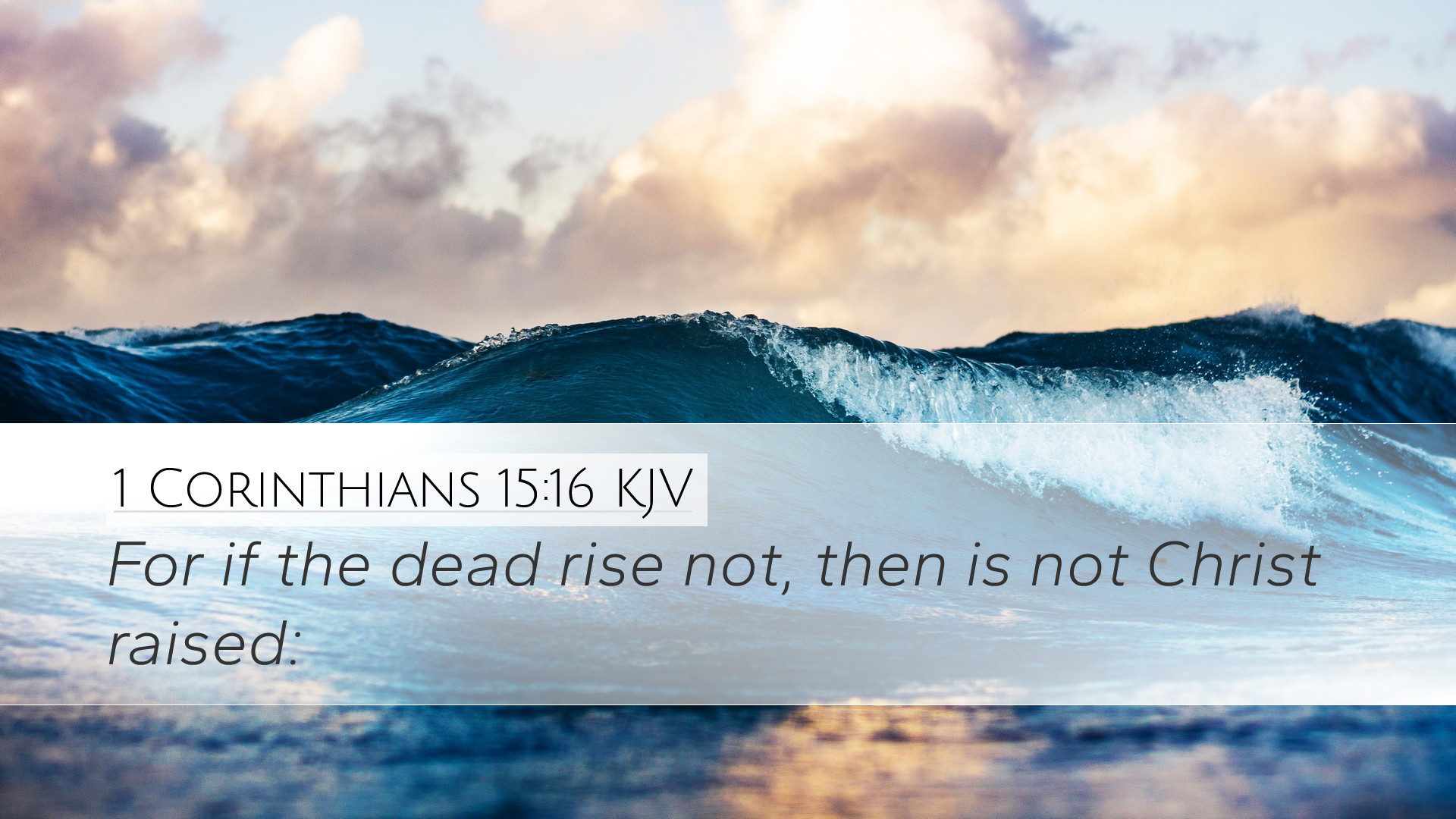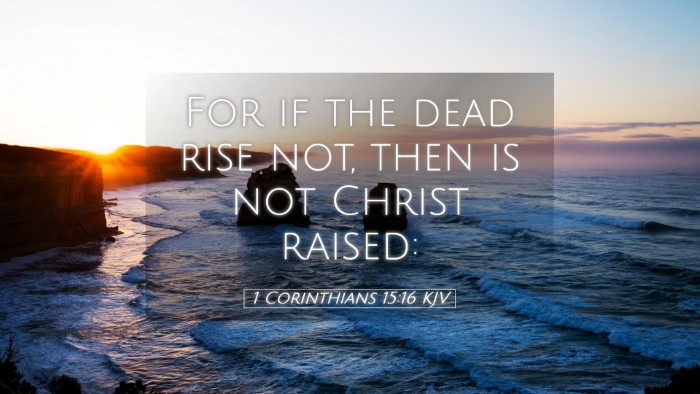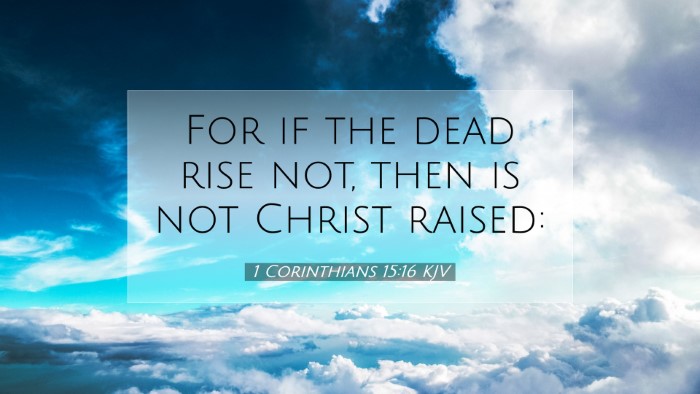Commentary on 1 Corinthians 15:16
Verse: "For if the dead rise not, then is not Christ raised."
Introduction
The Apostle Paul, in his first letter to the Corinthians, addresses a critical doctrine of Christianity: the resurrection of the dead. In 1 Corinthians 15:16, Paul directly confronts the implications of denying the resurrection. The significance of this declaration is profound, as it encapsulates the very essence of Christian hope and faith.
Contextual Analysis
Before delving into the specifics of verse 16, it is essential to understand the context within which Paul writes. The Corinthian church had been influenced by various philosophical views that challenged the belief in bodily resurrection, leading to confusion and doubt among believers.
- Historical Context: The Corinthians were surrounded by Hellenistic thought which often viewed the material body as inferior, thereby leading to the question of physical resurrection.
- Theological Implications: Paul's argument is that the resurrection is not merely an isolated doctrine; rather, it is intrinsically tied to the reality of Christ’s resurrection and the hope of believers.
Commentary Insights
Matthew Henry's Perspective
Matthew Henry emphasizes the futility of faith in Christ if the resurrection of the dead is denied. He draws attention to the fact that the resurrection is central to the Gospel narrative. Henry posits:
"If there be no resurrection of the dead, then Christ is not risen; if He is not risen, then our faith is vain."
Henry underscores the interconnectedness of resurrection and faith, suggesting that without the assurance of resurrection, the Christian faith collapses under its own weight.
Albert Barnes' Observations
Barnes presents a thorough exegetical approach, noting that Paul's rhetorical assertion demands a logical conclusion. He writes:
"The apostle argues with perfect clarity; if the dead do not rise, then Christ himself cannot have risen, which annihilates the very foundation of Christian belief."
Barnes presents the resurrection not just as a doctrine but as a historical event that validates the claims of Christianity. He emphasizes that the resurrection of Jesus is the keystone of Christian hope.
Adam Clarke's Exegesis
Adam Clarke provides detailed theological analysis, highlighting that the resurrection confirms Christ's divine authority. He comments on the significance of Christ's own resurrection as a precursor:
"The resurrection of Christ is the essential proof of the divine plan of salvation, and if that is negated, then our efforts are rendered meaningless."
Clarke insists that the resurrection serves as the guarantee for believers' own future resurrection. He connects the argument of resurrection directly to the Christian’s hope and calling.
Implications of Denying Resurrection
- Theological Implications: Denying the resurrection sets a dangerous precedent for the validity of other Christian doctrines.
- Practical Implications: It affects the moral and ethical foundation of Christian conduct, as the promise of eternal life gives believers a framework for living righteously.
Conclusion
1 Corinthians 15:16 serves as a pivotal point in Christian theology. The implications of this verse reverberate through the entire structure of faith. As emphasized by Henry, Barnes, and Clarke, removing the resurrection of the dead equates to dismantling the very core of Christian belief. For pastors, students, theologians, and scholars, it serves not only as a doctrinal statement but as a call to reaffirm the central tenets of faith in the face of contemporary doubts.
Reflection for Application
In light of this verse, believers are encouraged to:
- Embrace the Doctrine: Hold firmly to the resurrection as a central tenet of faith.
- Share the Hope: Actively communicate the hope of resurrection to others, reinforcing the joy of eternal life.
- Live Out the Faith: Let the assurance of resurrection shape moral and ethical behaviors daily.


